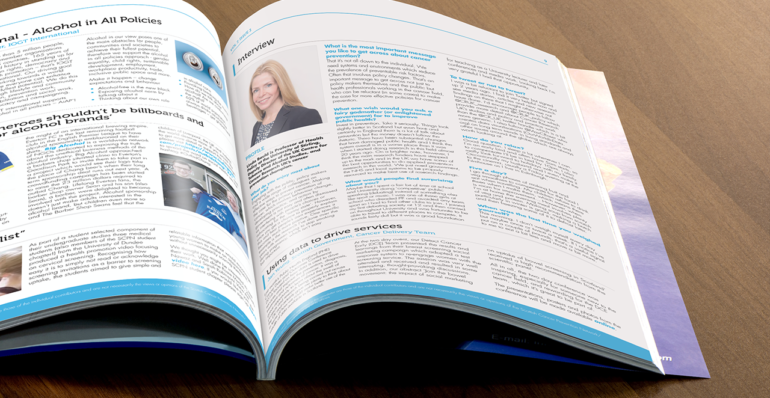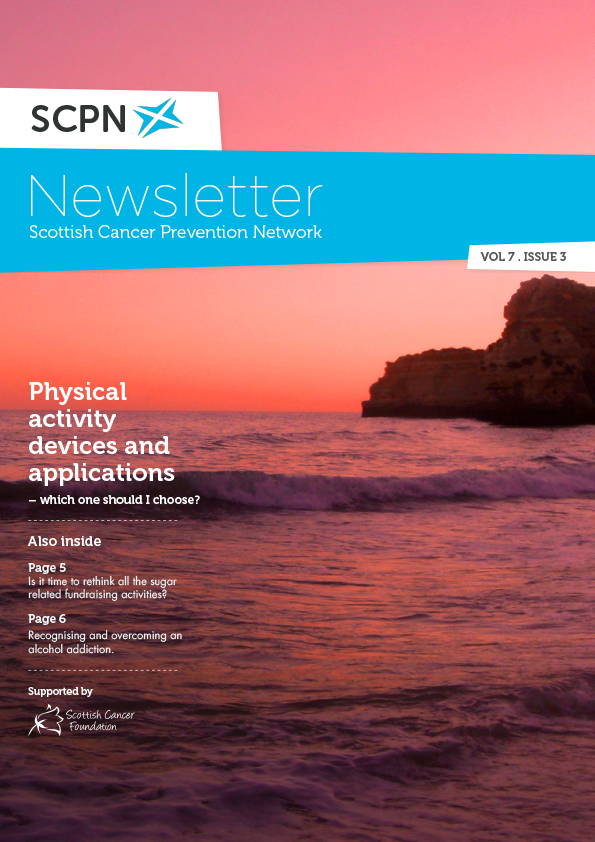
Interview: Professor Linda Bauld

20 Jul 16 |
Profile
Linda Bauld is Professor of Health Policy at the University of Stirling, Deputy Director of the UK Centre for Tobacco and Alcohol Studies, and Cancer Research UK’s cancer prevention champion.
What do you enjoy most about your job?
Engaging with the public, policy makers and a wide range of colleagues on effective ways to prevent cancer. Making the case for the primary prevention of cancer, which involves behaviour change, developing practice, and action by government is not easy and often dismissed as interfering with people’s choices or advocating for the ‘nanny state’. However, once you get a chance to properly explain this and hear people’s own experiences it becomes much more positive. One specific example is the research I’ve done over the years with women trying to stop smoking during pregnancy, which isn’t easy but important.
What is the most important message you like to get across about cancer prevention?
That it’s not all down to the individual. We need systems and environments which reduce the prevalence of preventable risk factors. Often that involves policy changes. That’s an important message to get across not just to policy makers themselves and the public but health professionals working in the cancer field, who can be reluctant (in some cases) to make the case for more effective policies for cancer prevention.
What one wish would you ask a fairy godmother (or enlightened government) for to improve public health?
Invest in prevention. Take it seriously. Things look slightly better in Scotland but even here and certainly in England there is a lot of talk about prevention but the money doesn’t follow the rhetoric. There have been substantial changes that have damaged public health and I think the system overall is in a worse place than it was when I started doing research in this field almost 20 years ago. On a brighter note, however, I think the main research funders have stepped up to the mark and in the UK we have some of the best opportunities to do applied prevention research in the world. We just need government, the NHS and local systems to be properly resourced to make best use of research findings.
What would people find surprising about you?
Maybe that I spent a fair bit of time at school and University doing ‘competitive’ public speaking (debating) instead of something else like sport or music. I was one of those girls at school who dreaded PE and avoided any team sport so I had to find other clubs to join. I joined my first debating society at 12 and then carried on throughout University and was fortunate to be able to travel to different places to compete. It sounds fairly dull but it was a good foundation for teaching as a University lecturer and later conferences and media work. Looking back I’m very grateful I had that opportunity.
To tweet or not to tweet?
I was a bit reluctant to join Twitter but signed up 2 years ago. I find it very helpful now and see media stories, articles and new research findings on there that I might otherwise not
have done. I’d encourage people to follow @CRUKresearch and @CRUK_policy which provide more detail about Cancer Research UK’s studies and policy and practice work than the @CR_UK twitter handle which is a bit more generic. I also follow @MaxCroser who creates data visualisations (OurWorldInData.org) on long term trends in living standards and other issues around the globe which are always worth looking at.
How do you relax?
Good question. I sleep a lot whenever I can. I’m an early bird and often have 5am starts, so to compensate I’ll be in bed by 10pm. I also really look forward to holidays with my family. Occasionally my husband and I even make it to the cinema, usually a Friday evening at the Filmhouse as I live in Edinburgh.
Five a day?
I go through phases of making fruit and veg smoothies to compensate for the food I eat when travelling. My children refuse to drink these when I make them, which means there is room for improvement… However, when I’m at home the evening meal involves plenty of veg and protein. Making soup from scratch particularly in winter is good, making a batch and then freezing some of it to defrost later.
When was the last time you weighed yourself?
This morning. I don’t weigh myself every day but maybe once or twice a week. If I notice I’ve put on a couple of pounds, that’s a useful signal to me to eat a bit less and move a bit more.
This article was originally published in The SCPN Newsletter Volume 7, Issue 3. Read the newsletter below using Issuu, or feel free to download the PDF…
View the PDF
The SCPN Newsletter: Volume 7, Issue 3
In our penultimate issue of 2016, an overview of physical activity devices and apps (which one should you choose?), rethinking sugar-related fundraising activities and recognising and overcoming an alcohol addiction, as well as the usual breakdown of cancer prevention research and news from the Scottish Cancer Prevention Network.